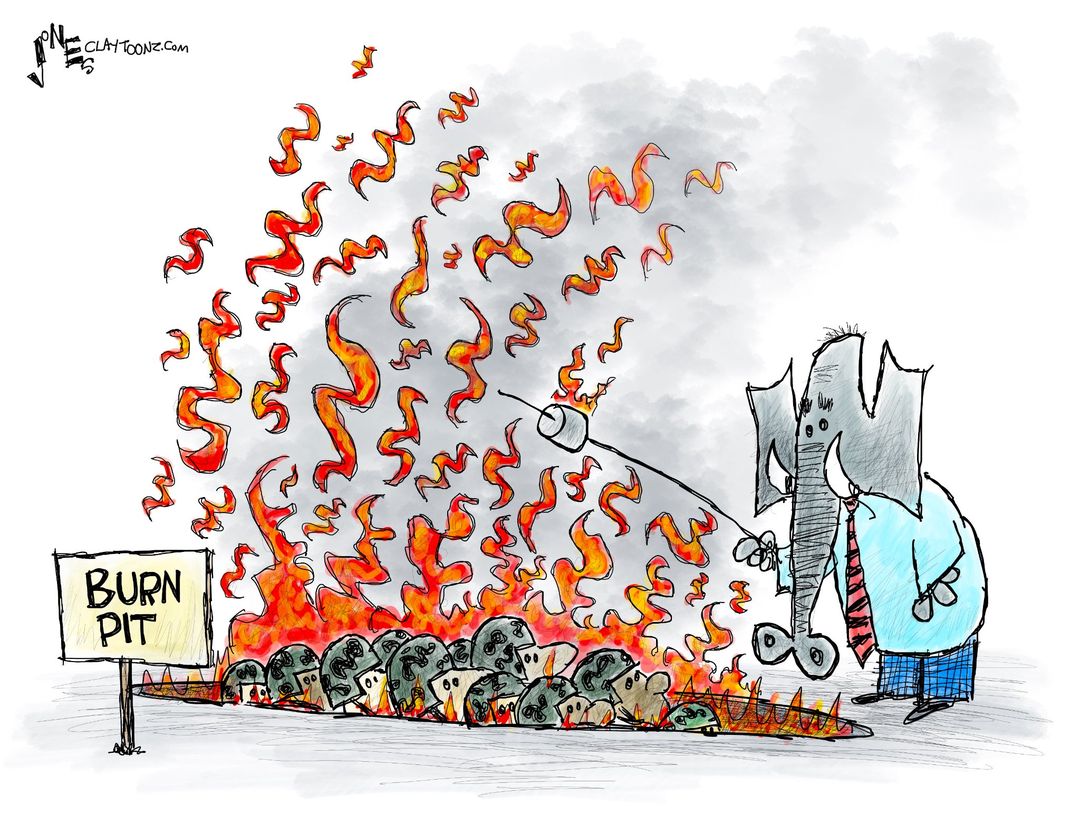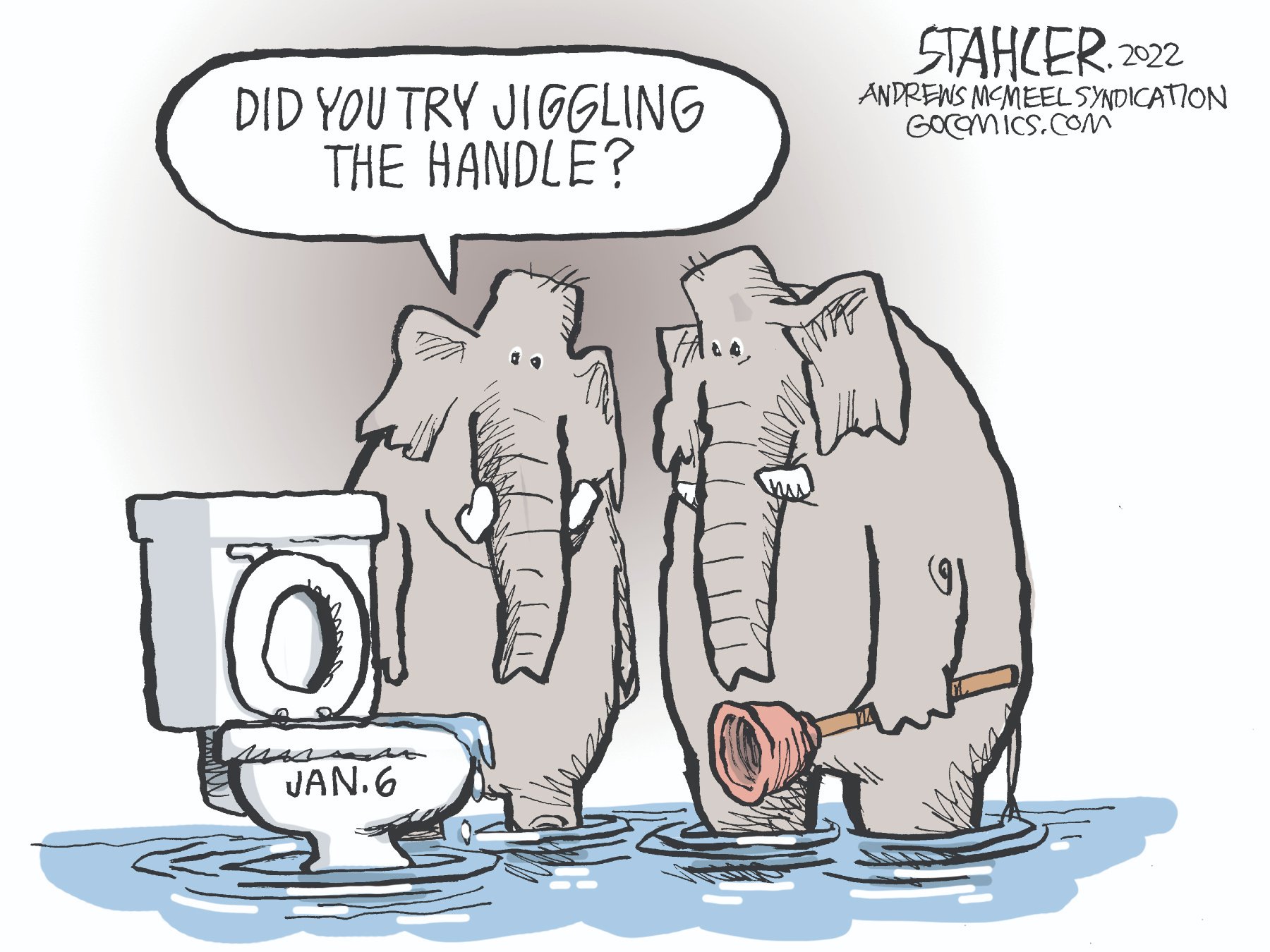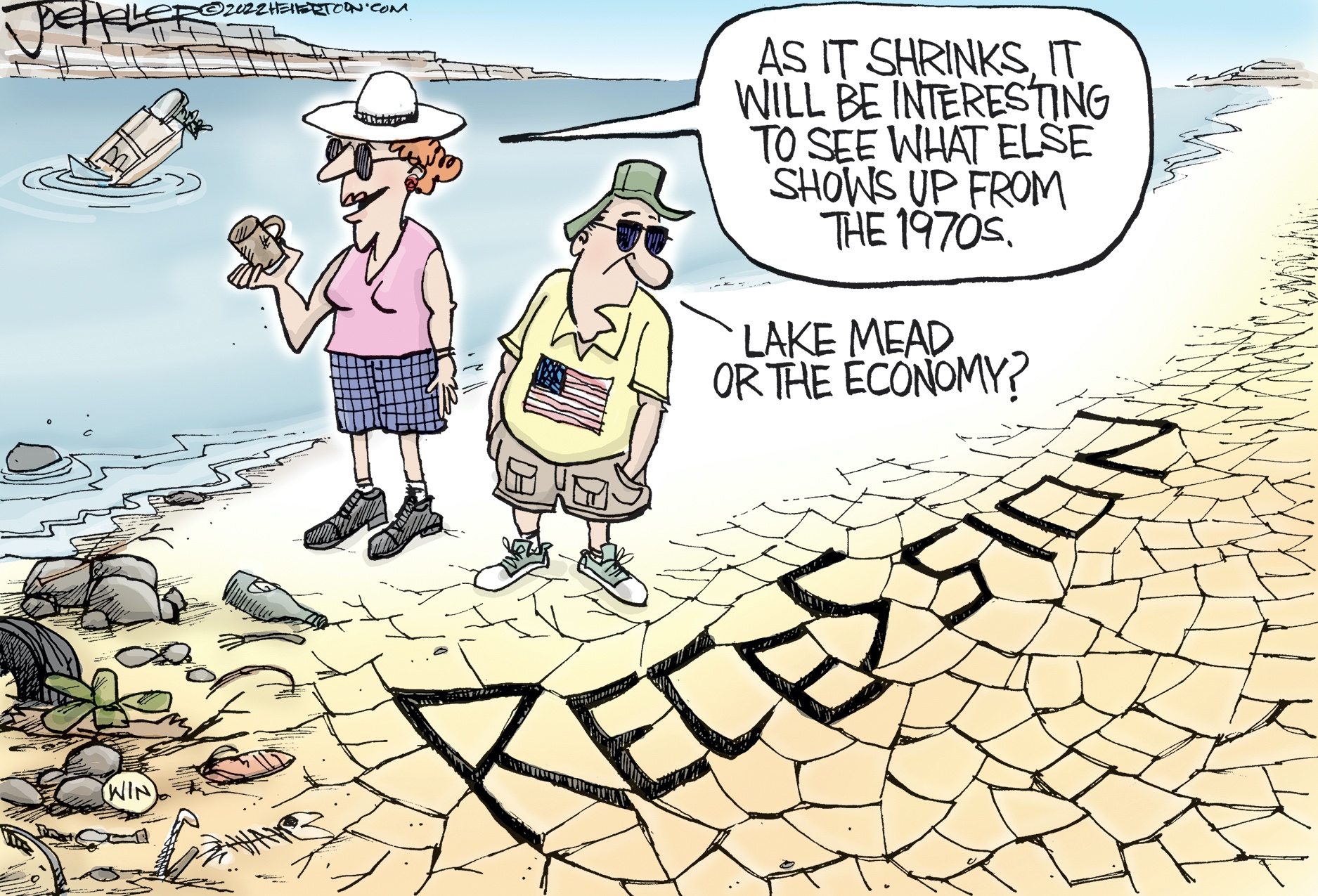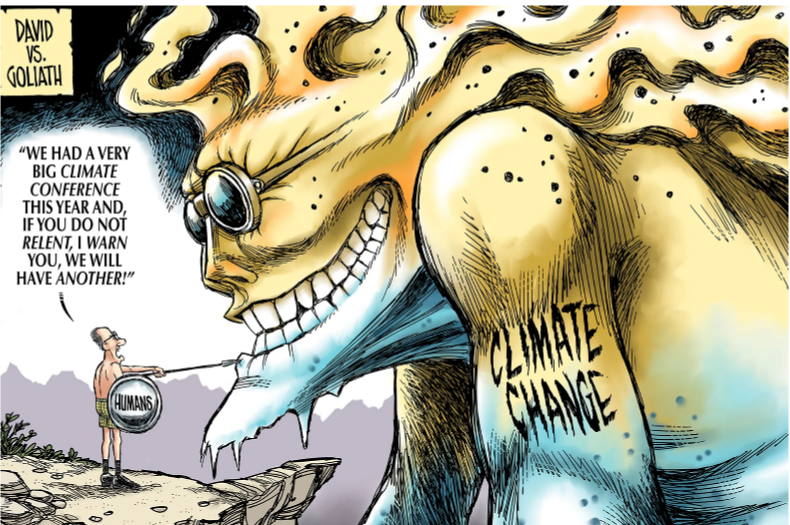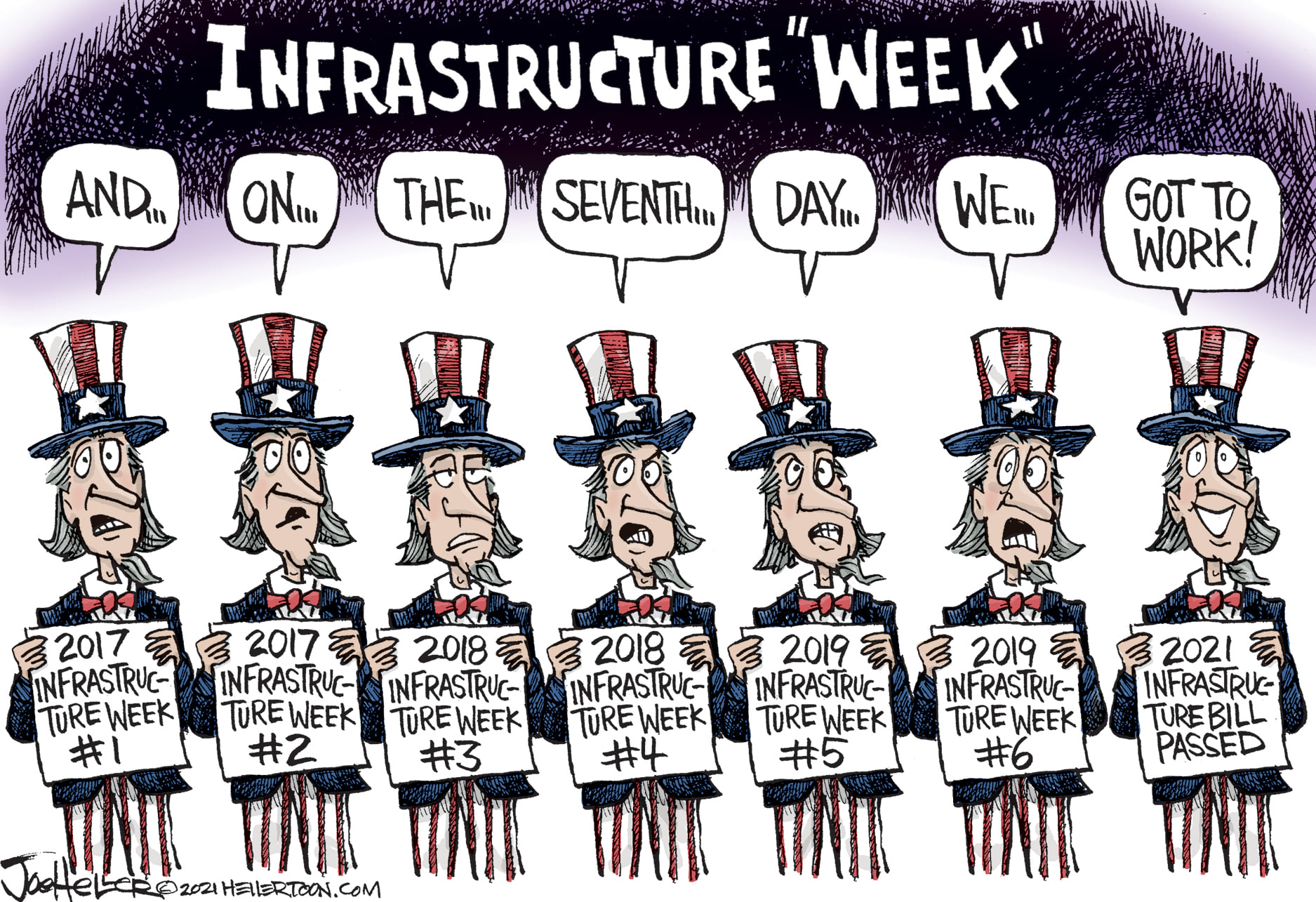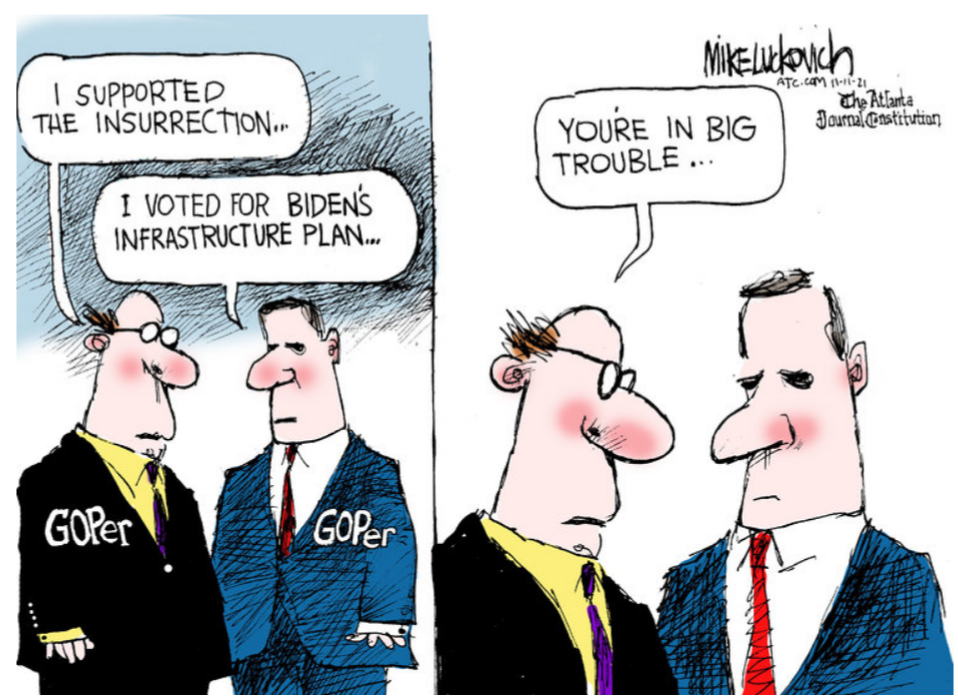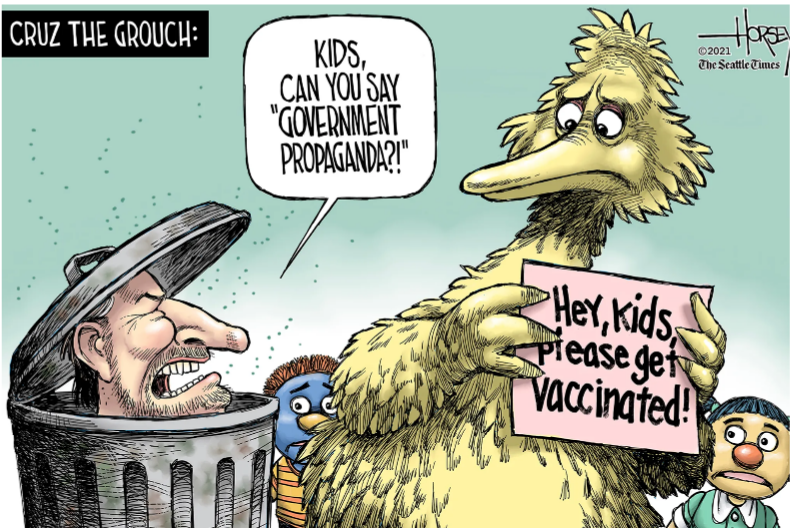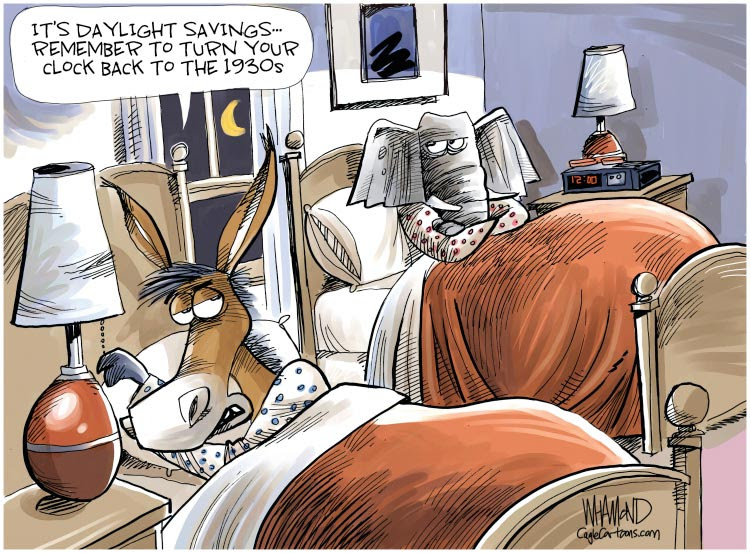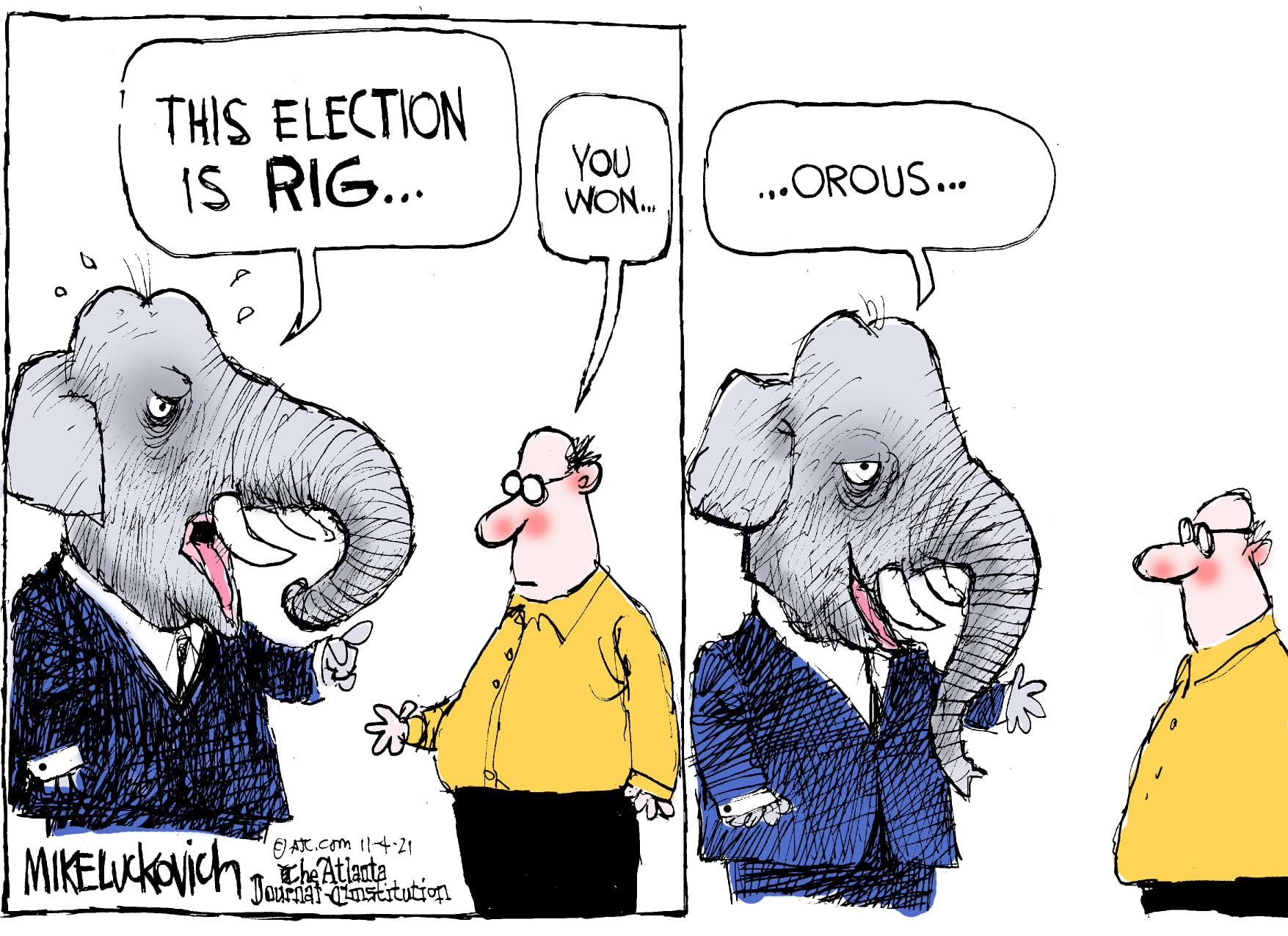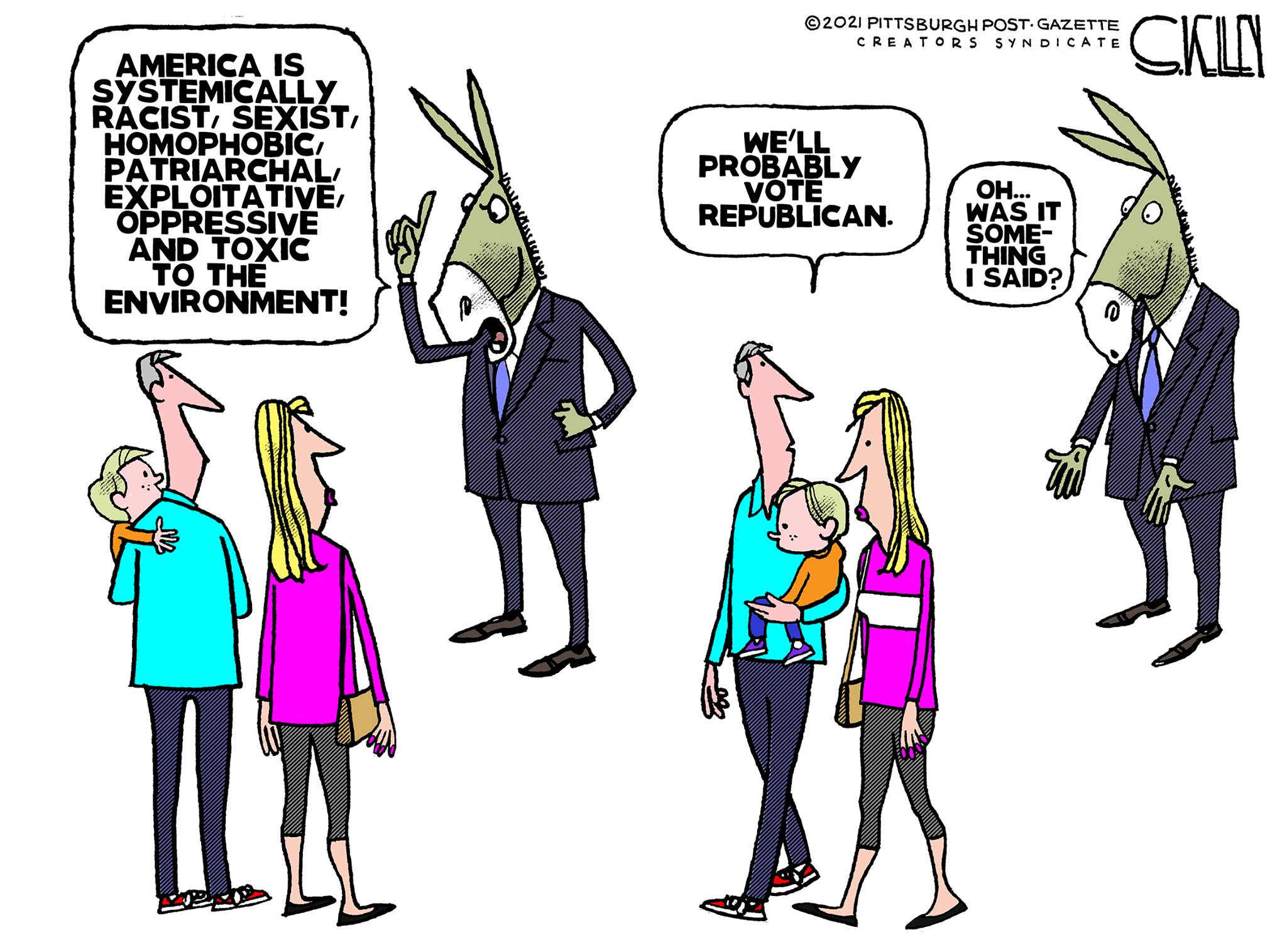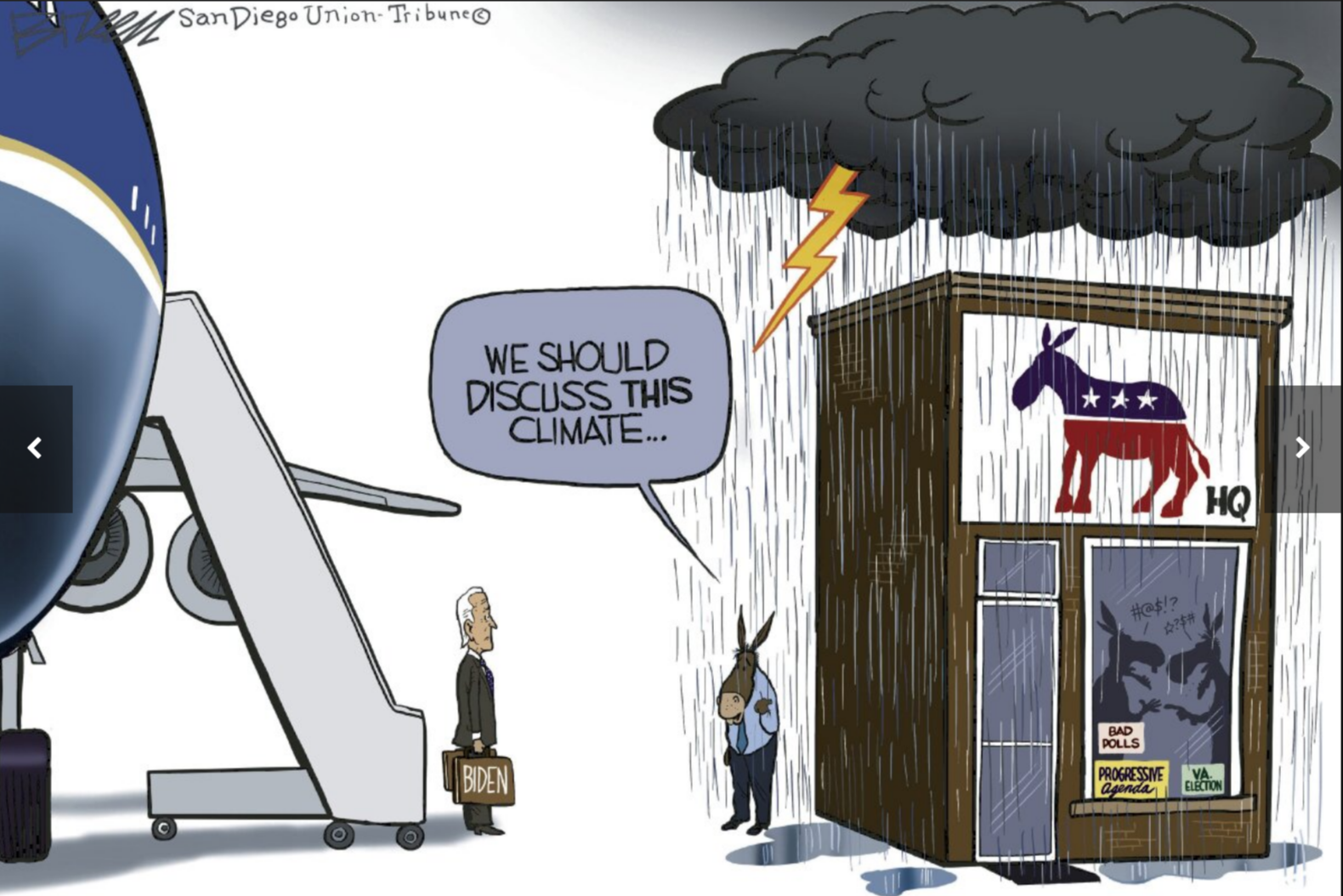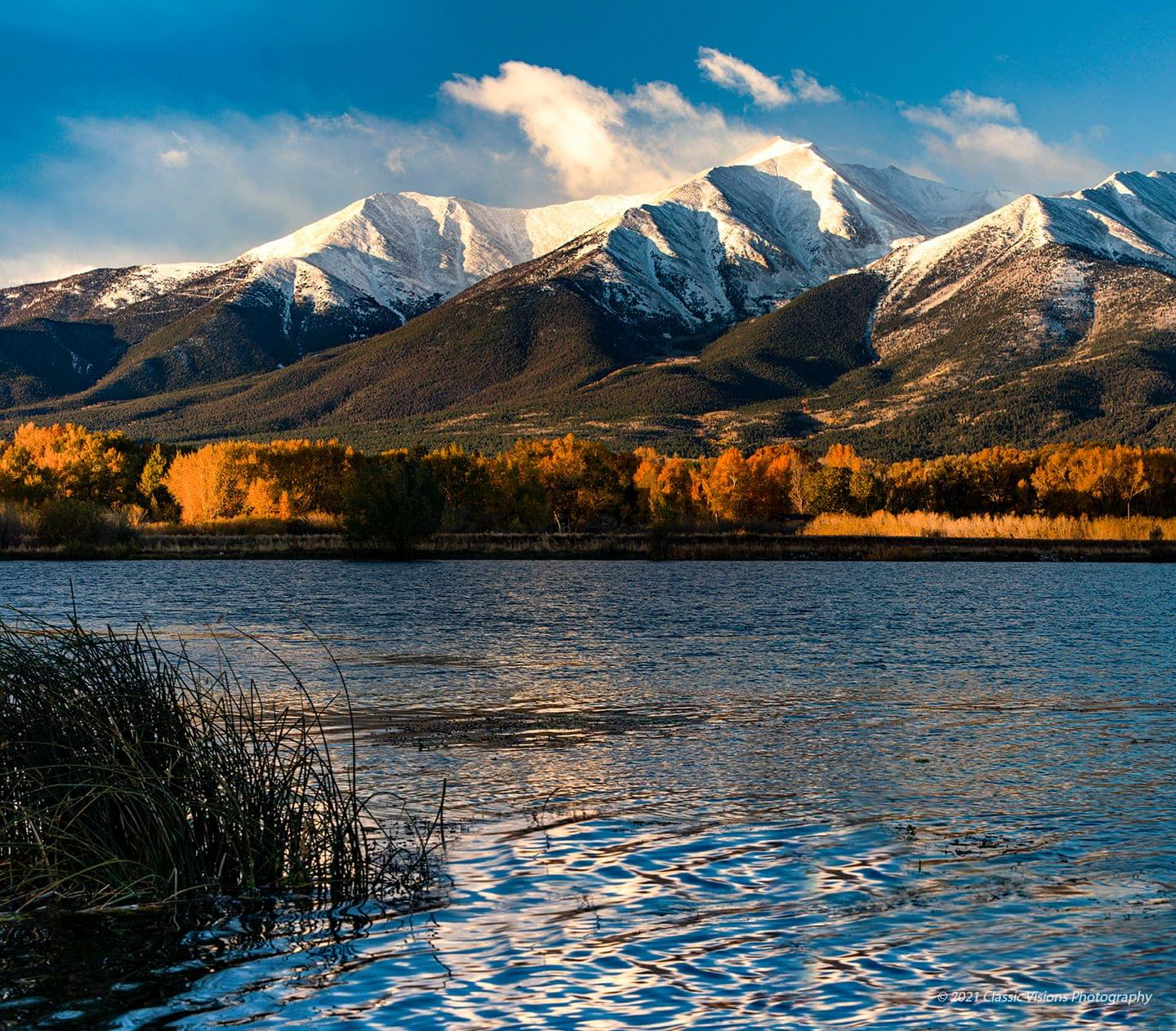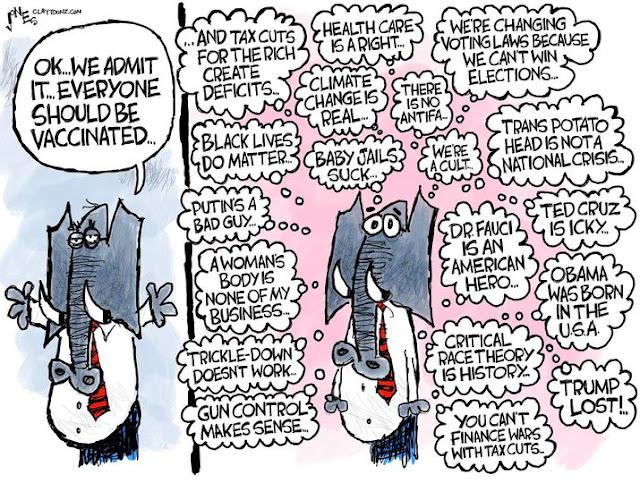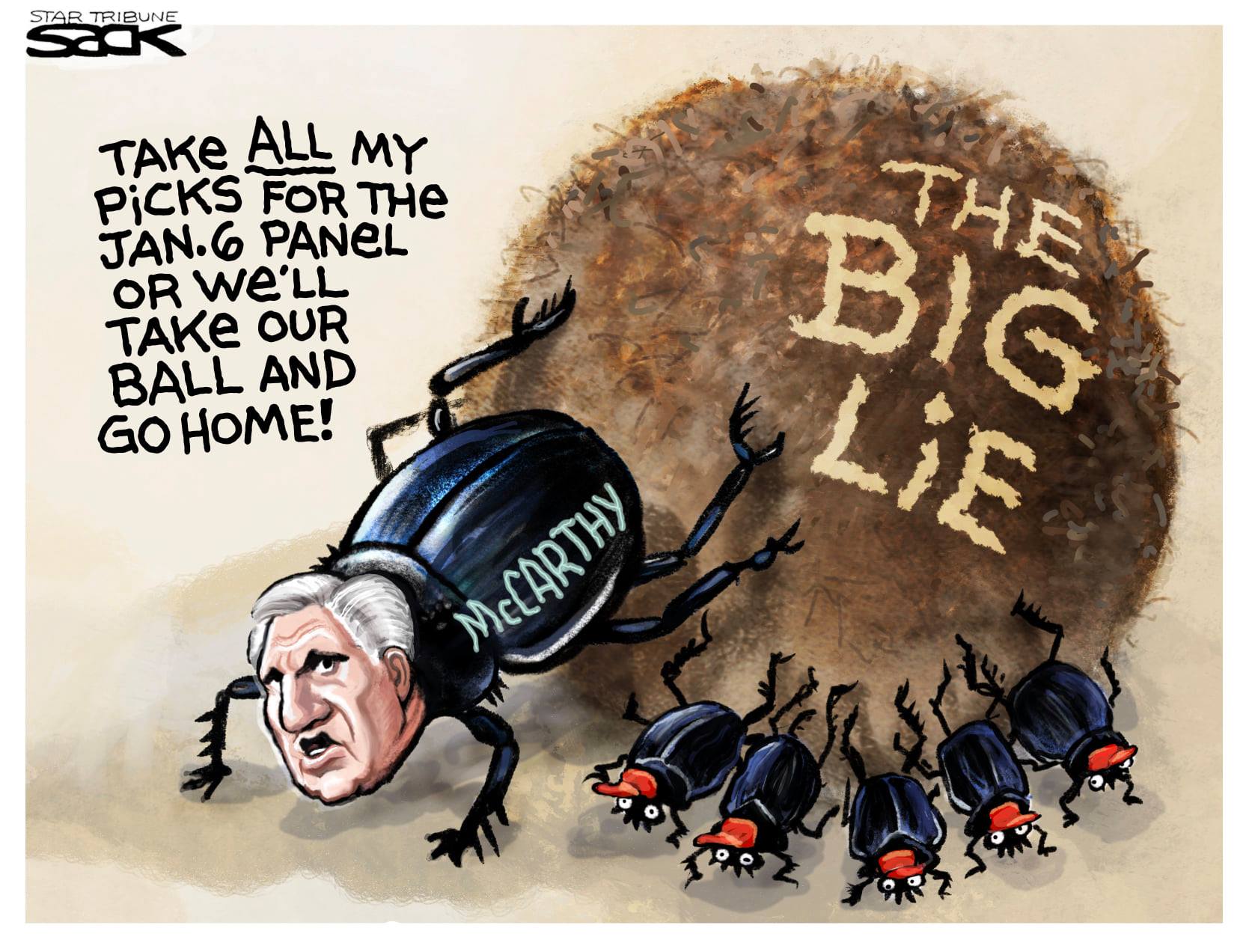The Daily Escape:
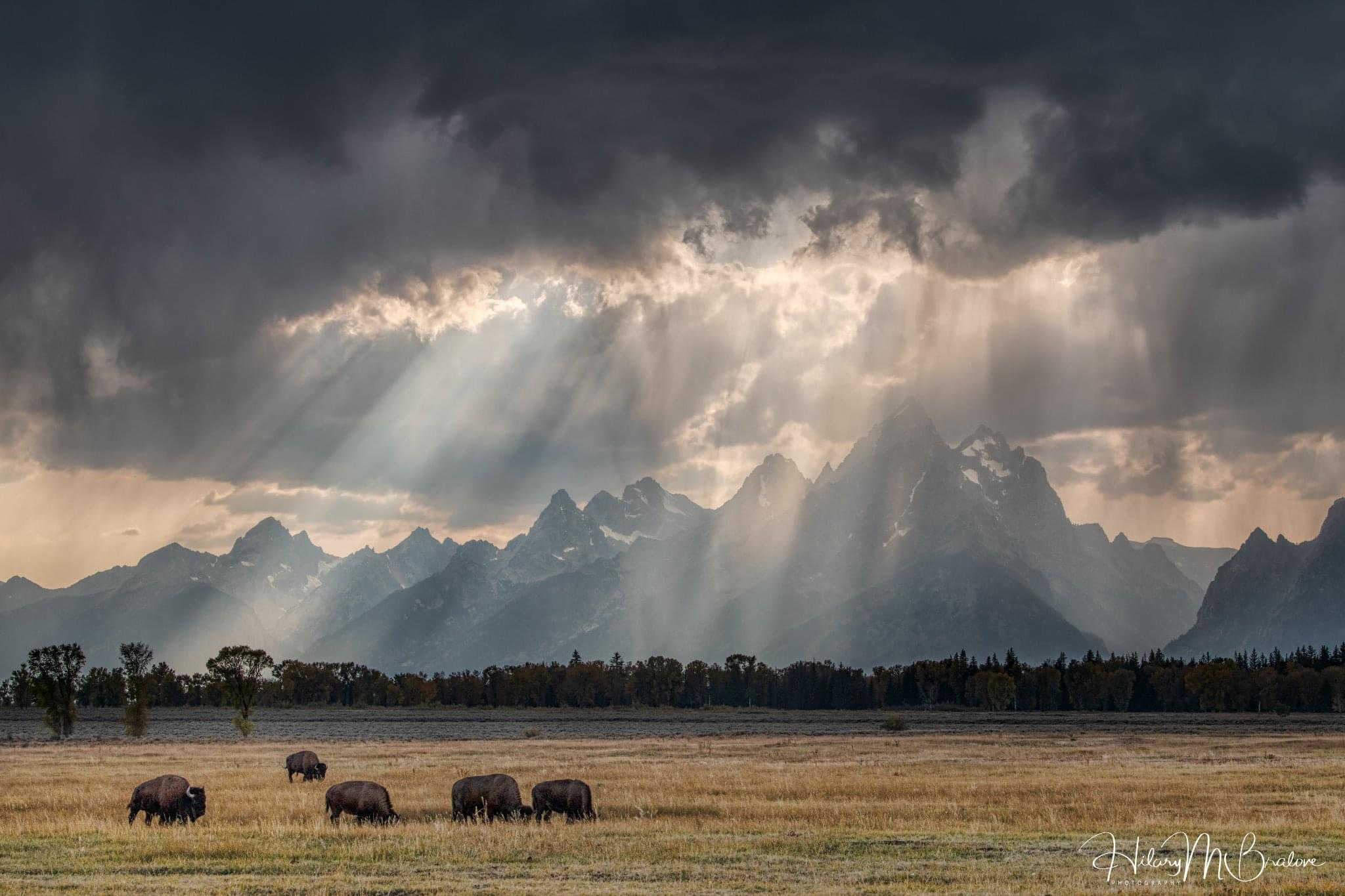
Summer storm passes, Grand Teton NP, WY – August 2022 photo by Hilary Bralove
The Senate came into session at 12 pm Saturday, and after a full 24 hours, it paused the vote-a-rama on Sunday for a new prayer. Those are the Senate rules. Then the Senate promptly resumed its vote-a-rama, which ended about 3:15 pm on Sunday. From the WaPo:
“The Senate on Sunday approved a sweeping package to combat climate change, lower health-care costs, raise taxes on some billion-dollar corporations and reduce the federal deficit, as Democrats overcame months of political infighting to deliver the centerpiece to President Biden’s long-stalled economic agenda.”
While most of the Democrat’s reconciliation process proceeded according to plan, Senate Republicans successfully stripped a provision capping the price of insulin in the private marketplace from the Inflation Reduction Act (IRA) by a 57-43 vote, with seven Republicans (Cassidy, Collins, Hawley, Hyde Smith, Kennedy, Murkowski and Sullivan) voting to keep it in. But the seven GOP votes, plus all Democrats, weren’t enough to reach the 60-vote threshold necessary to pass.
The cap on insulin prices for only those on Medicare remained in the bill since it complied with the rules on reconciliation. Apparently, the Republicans think that if we give people handouts for having diabetes America’s just incentivizing people to get diabetes. Who wants that?
Democrats included a new tax on large companies that currently pay nothing to the US government and added about $80 billion for the Internal Revenue Service to pursue tax cheats. They also approved a 1% tax on companies that buy back their own stock, a practice that many see as detrimental to the economy, that benefits only wealthy shareholders and executives.
After the bill passed, Republicans were predictably outraged. The appropriately-named Sen. Mike Crapo (R-ID) said:
“It does nothing to bring the economy out of stagnation and recession. But rather, the Inflation Reduction Act of 2022 gives us higher taxes, more spending, higher prices — and an army of IRS agents…”
And it’s important to note that while Democrats don’t think that Sens. Manchin and Sinema are all that great, don’t forget that this watered down bill was opposed by EVERY SINGLE REPUBLICAN.
There is plenty to crow about in the IRA. Does it contain everything on the progressive wish list? No, but Dems should take the win and stop pissing and moaning about what couldn’t get by Manchin, Sinema and/or the Senate Parliamentarian, and sell the bill hard to the American people.
If Democrats want to deliver even more, they’ll need to improve their margin in the Senate, and hold the House in the November mid-terms.
It’s not enough for Democrats to wait for Republicans to shoot themselves in the foot this fall, even though some candidates can be counted upon to try hard to do just that. Democrats need to be shouting about their successes. Just yesterday, Trump said at CPAC: “You have not good job numbers now”, even though the just-published job numbers were awesome! That has to be countered at every opportunity.
This means a wall-to-wall, multi-pronged messaging campaign, reminding Americans every minute that Republicans can’t be trusted on the economy. And despite where inflation is today, we need to be saying that gas prices are down nearly $1.00/gallon in the last seven weeks.
Maybe John Stewart should become the Dem’s Minister of Information?
We need to say that most GOP candidates support the Big Lie and the impeached coup plotter, Trump. That they’re willing to eliminate the right to an abortion in America. On Friday, Indiana’s Republicans passed and Republican Governor Eric Holcomb immediately signed, a bill that prohibits nearly all abortions from the moment of gestation. Several Republican-controlled states will shortly pass similar laws.
People must, as Tom Sullivan says, “campaign like crazy“, while reminding all Americans that the Party of Lincoln no longer will deliver anything that ordinary people want.
Time to wake up America! We’re at war politically and ideologically with Republicans. The only way to win is to keep defeating them at local, state, and federal levels until they stop trying to force their radical ways on the rest of us. To help you wake up, watch, and listen to the interesting but short-lived group, 4 Non Blondes play their big hit from 1992, “What’s Up”:
Sample Lyric:
25 years and my life is still
Tryin’ to get up that great big hill of hope
For a destination
I realized quickly when I knew I should
That the world was made up of this brotherhood of man
For whatever that means
And so I cry sometimes when I’m lying in bed
Just to get it all out what’s in my head
And I, I am feeling a little peculiar


